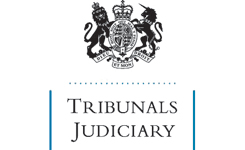|
Notes:
|
Reported as [2012] AACR 4
Special educational provision – naming of school – parental preference – whether general obligation to have regard to parental preference operates independently of obligation to comply with parental preference in special educational needs cases – meaning of “public expenditure”
The mother of a child with special educational needs had appealed to the First-tier Tribunal against the proposed placement by Bexley of the child in a maintained special school within the borough. The mother had expressed a preference for a special school maintained by the Royal Borough of Kensington and Chelsea. If the parental preference were followed, Kensington and Chelsea would recoup the cost from Bexley. Paragraph 3(3) of Schedule 27 of the Education Act 1996 confers a right on the parent of a child with special educational needs who is seeking a place at a suitable maintained school to have their preference complied with, provided the placement would not be incompatible with the efficient use of resources. Section 9 of the 1996 Act creates a duty to have regard to the general principle that pupils are to be educated in accordance with the wishes of their parents so far as that is compatible with (inter alia) the avoidance of unreasonable public expenditure. The First-tier Tribunal found that there would be no cost to the public purse as a whole in the child attending the out of borough school and, without setting out its reasoning, that both schools were suitable, but considered that the decision of the House of Lords in B v London Borough of Harrow and others [2000] 1 WLR 223; [2000] 1 All ER 876; [2000] ELR 109 was directly in point and binding, and that the detriment to the local authority’s resources under paragraph 3(3) of Schedule 27 was sufficient to determine the appeal against the mother. The tribunal did not attempt to say in any detail how the Harrow case affected section 9. The mother appealed to the Upper Tribunal.
Held, allowing the appeal, that:
1. the natural reading of Lord Slynn’s remarks in Harrow about section 9 is that, in a case falling within paragraph 3(3), although section 9 continues to exist it has little or no independent function or operation distinct from the paragraph 3(3) test. However section 9 was not in issue in that case and those remarks did not form part of the ratio of the case, although even as obiter dicta, the remarks of a unanimous House of Lords clearly merit due respect (paragraphs 30 to 37);
2. the Upper Tribunal is bound to follow Harrow as to it being the resources of the placing authority that are relevant under paragraph 3, but “public expenditure” in section 9 has a different meaning from “resources” in paragraph 3(3) and is not restricted to the resources of the placing local authority: O v Lewisham [2007] EWHC 2130 and K v LB Hillingdon [2011] UKUT 71 (AAC); [2011] AACR 31 followed (paragraphs 37, 48 and 49);
3. Lord Slynn’s remarks in Harrow are to be taken as a recognition that, in the light of the weakness of section 9, it will usually be paragraph 3(3) that will be determinative in cases where a place in a maintained school is sought. However, the distinct and separate exercise in section 9 must still be carried out in such cases. That is a rather broad discretionary exercise, to which the preference of the mother (and, in particular, the reasons for that preference: per Sedley LJ in C v Buckinghamshire County Council and the Special Educational Needs Tribunal [1999] EWCA Civ 926) are material, among other considerations. Given the breadth of that discretion, it was not possible to say that the tribunal’s error in failing to apply section 9 was not material (paragraphs 50 to 60);
4. while section 9 must be properly applied as it stands to the exercise of the duty of naming a school imposed on the local authority by section 324, that did not exclude consideration of the financial impact on Bexley or any other relevant consideration, notwithstanding that there was in this instance no additional “public expenditure”, unreasonable or otherwise, involved (paragraphs 61 and 62).
The judge referred the case to the First-tier Tribunal (Health, Education and Social Care Chamber) for rehearing by the same tribunal.
|
